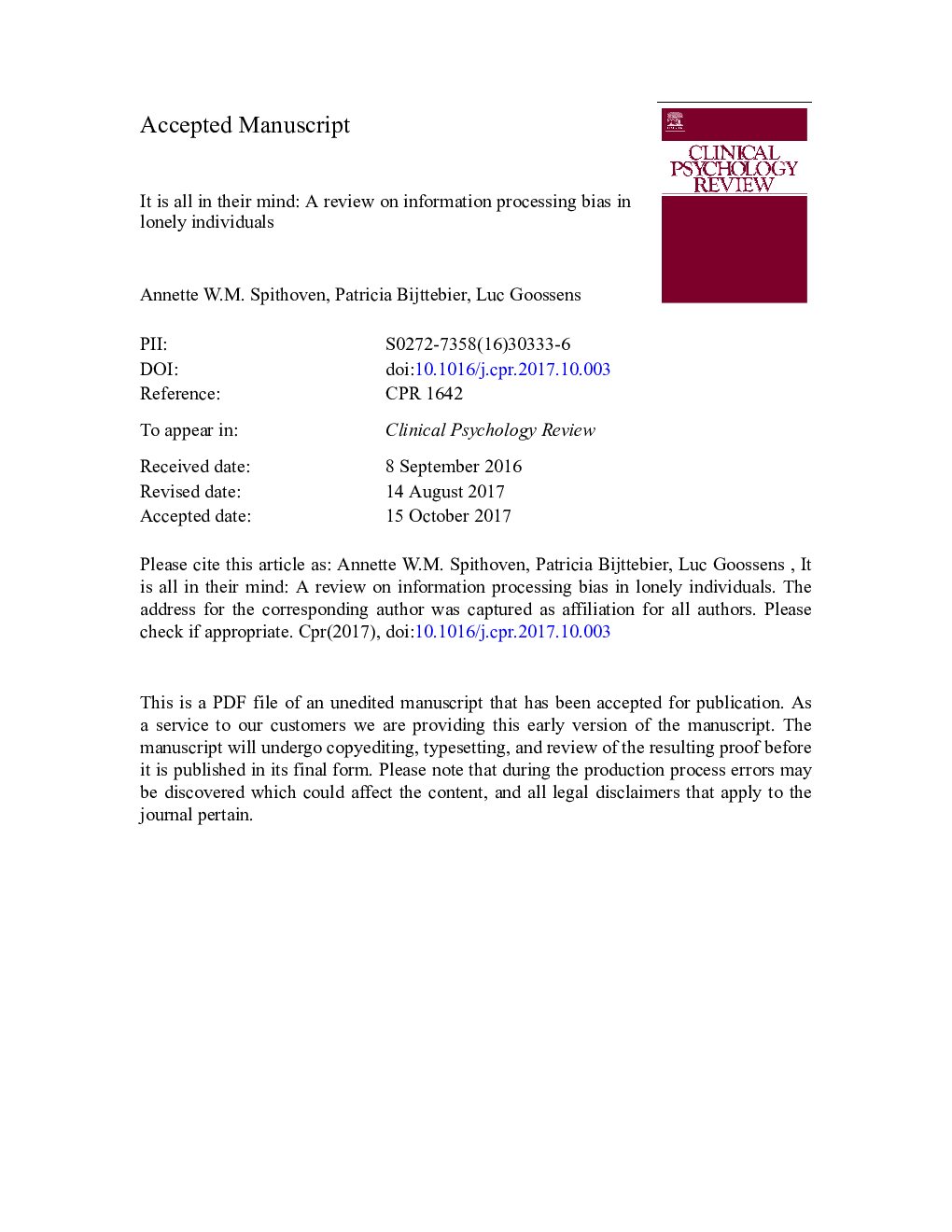| Article ID | Journal | Published Year | Pages | File Type |
|---|---|---|---|---|
| 7263627 | Clinical Psychology Review | 2017 | 64 Pages |
Abstract
Loneliness is a distressing emotional state that motivates individuals to renew and maintain social contact. It has been suggested that lonely individuals suffer from a cognitive bias towards social threatening stimuli. However, current models of loneliness remain vague on how this cognitive bias is expressed in lonely individuals. The current review provides an up-to-date overview of studies examining loneliness in relation to various aspects of cognitive functioning. These studies are interpreted in light of the Social Information Processing (SIP) model. A wide range of studies indicate that lonely individuals have a negative cognitive bias in all stages of SIP. More specifically, lonely individuals have an increased attention for social threatening stimuli, hold negative and hostile intent attributions, expect rejection, evaluate themselves and others negatively, endorse less promotion- and more prevention-oriented goals, and have a low self-efficacy. This negative cognitive bias seems specific to the social context. Avenues for future research and implications for clinical practice are discussed.
Related Topics
Health Sciences
Medicine and Dentistry
Psychiatry and Mental Health
Authors
Annette W.M. Spithoven, Patricia Bijttebier, Luc Goossens,
